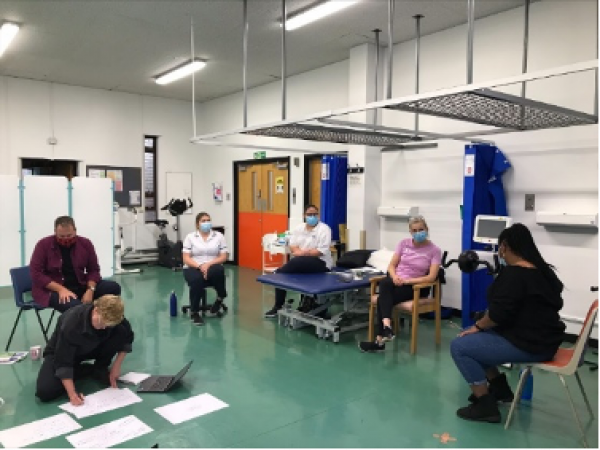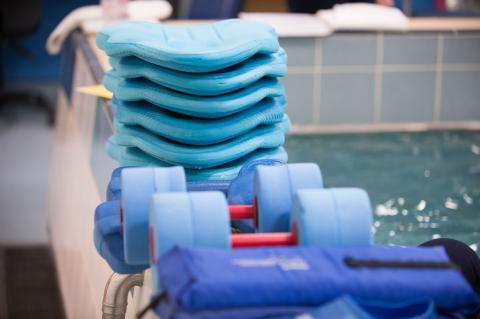Find out how CSP members have organised to campaign against loss of physiotherapy or rehabilitation space.
On this page:
How members in Kent campaigned against loss of space
A CSP member explains how their department joined together to tackle loss of physio space due to the pandemic.
The situation
We had our physio space taken from us in order to help with the surge in demand that the pandemic brought on us here in Kent. As one of the worst-hit areas, we were happy to give this space up temporarily, but we couldn’t get a clear answer about when we would get our space back. Throughout the whole pandemic, we have remained open, albeit at reduced capacity at times. Therefore, operating without a space has been difficult to say the least.
What did you do?
I had a meeting over Zoom with Iain Croker, one of the CSP organisers and, among other things, he reiterated to me the importance of meaningful consultation. He suggested completing an impact assessment, which I had never done before, but he talked me through it and sent me an example. We completed the impact assessment and, as there is an initiative in our hospital on wellbeing, we used that as a driver to put across our feelings and how it affected us a department. We discussed the situation with a member of our 'Time To Talk' team, who have been supporting members of staff through difficult situations during the pandemic.
What happened?
It took a few weeks but we officially got our department back! I am writing very happily from my cubicle with my colleagues around me, and it is a joy to see the smile on everyone's faces. Unfortunately, given the growing demand of acute services and the trend of musculoskeletal (MSK) physiotherapy leaving acute hospitals, I do feel this is a temporary reprieve, but it is indeed a very welcome one.
What did you learn from this?
I feel the most important aspect was approaching the situation as a team and involving as many people as possible. We met together as a department and ensured we were all united. However, at meetings with senior members of the trust, we all had a voice, not only our managers. We asked for a meeting over Teams with all the staff, which was helpful in portraying how we all felt.
To be honest, our management have also been brilliant in fighting our corner and explained to the trust how our hands were tied without a department to work from and how it could be negatively affecting patients.
CSP organisers visit Swansea Morriston Hospital

The CSP organising team attended Swansea Bay University Health Board to meet their steward network and discuss workplace issues such as loss of department space and rehabilitation space, restructuring, and moving towards seven-day working.
Stewards requested support from the organising team to learn strategies and tactics they could use to get members more engaged in the consultation processes, allowing them to develop collective action from members to ensure that any changes were completed with meaningful consultation.
Workplace campaigning tips
The CSP organisers ran a 90-minute workshop on organising tactics and workplace campaigning covering:
- Framing the issue – campaign wording
- List building – mapping all members
- Initial reaching out – emails, posters, WhatsApp, member meetings.
- Mobilising allies – staff, community, councillors, community workers
- Organising ladders – meetings, petitions, poster delivery to managers, MS letter campaign, media, local patient campaign, staff side demonstrations.
Alice Mayo, CSP steward:
I really enjoyed our organiser meeting. It was my first opportunity to meet CSP staff since I became a rep. They gave us some great ideas that we have already put into action to engage members with workplace issues.
Swansea CSP stewards have since used their skills to launch a campaign to get CSP members engaged with the changes that are happening and have so far had great success at showing the powers of collective action.
